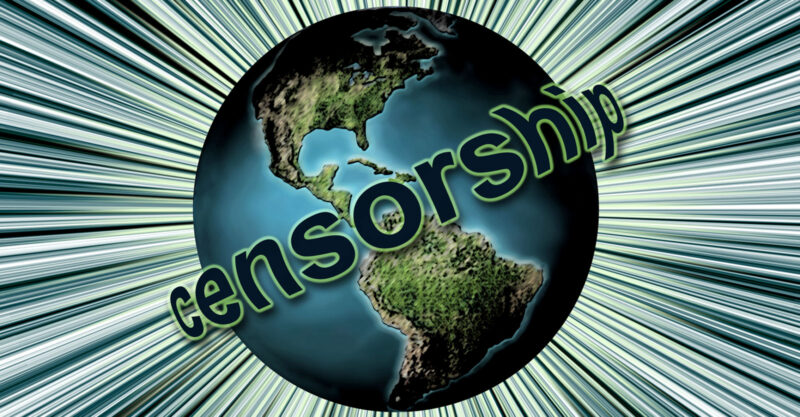by W. Aaron Vandiver, Childrens Health Defense:
 Social media “climate misinformation” policies are targeting a wide range of people on both the Right and Left who dispute official narratives about climate “solutions” preferred by the government and its powerful corporate backers.
Social media “climate misinformation” policies are targeting a wide range of people on both the Right and Left who dispute official narratives about climate “solutions” preferred by the government and its powerful corporate backers.
In May, LinkedIn suspended the account of Republican presidential candidate Vivek Ramaswamy after he posted several climate-related campaign messages.
In one message, Ramaswamy asserted that “fossil fuels are a requirement for human prosperity,” and in another, he wrote that if adherents of the “climate religion” really cared about the climate “they’d be worried about, say, shifting oil production to places like the U.S. and China.”
TRUTH LIVES on at https://sgtreport.tv/
“Big Tech election interference has begun,” Ramaswamy said.
LinkedIn (owned by Microsoft) backtracked under pressure and reinstated his account. But the episode highlighted the ways in which social media companies are expanding their “content moderation” of “climate misinformation” — with potentially far-reaching consequences across the political spectrum.
In another incursion into the presidential race, YouTube attached a “Context” note to a June 5 interview of Democratic presidential candidate Robert F. Kennedy Jr. in which he discussed his views about climate change with Canadian psychologist Jordan Peterson.
YouTube’s “Context” note included a definition of climate change from the United Nations (U.N.) and linked to a page on the U.N. website. The video is no longer available and now leads to a “Community Guidelines” warning.
In April, TikTok announced:
“We will begin to ramp up enforcement of a new climate change misinformation policy which removes climate change misinformation that undermines well-established scientific consensus, such as content denying the existence of climate change or the factors that contribute to it.”
TikTok’s policy is similar Facebook’s, which over the last several years has censored prominent climate contrarians (often pejoratively referred to as “deniers”) Michael Shellenberger and Bjorn Lomborg.
Like Ramaswamy, Shellenberger and Lomborg disputed aspects of the “scientific consensus” on climate change and argued for the continued use of fossil fuels and the expansion of nuclear energy.
Lomborg has argued that “partisan ‘fact-checking’ pushes alarmist climate narratives.” Yet there are counterexamples of people being censored on social media because they are raising the alarm about climate change and environmental degradation more loudly than representatives of the “scientific consensus.”
Social media companies, under pressure from government authorities, have been applying their climate misinformation policies not only against people who express doubt about climate change itself but also against a wide range of people who question the climate “solutions” promoted by the government and its powerful corporate backers.
This includes many people who do not fall into the “denier” camp at all.
The large corporations, government entities and political interests that have claimed the power to censor social media are using this power to manipulate the climate debate toward their preferred “solutions” and to denigrate alternative perspectives and approaches.
From censoring ‘denial’ to censoring debate about ‘solutions’
“Now it’s not so much denying the problem,” President Biden’s first National Climate Advisor Gina McCarthy said in an interview last year with Axios for its virtual event, “The Infodemic Age.” “What they [spreaders of alleged misinformation] are really targeting is our inability to accelerate the answers to climate. The technologies we need moving forward. That is equally dangerous to denial because we have to move fast.”
Read More @ ChildrensHealthDefense.org



